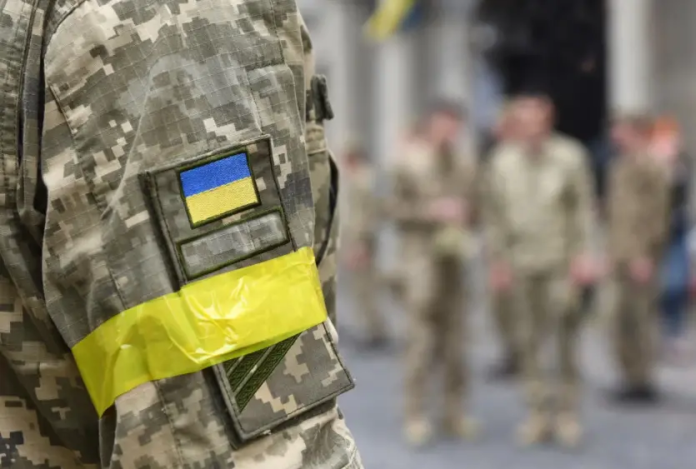Ukrainian media are sharing footage of the forced mobilisation of men across the country, while wives of mobilised soldiers have begun recording video messages as part of the “I’m not afraid to speak” campaign defying Ukrainian President Volodymyr Zelensky’s government policy.
Forced mobilisation efforts
Recent videos spreading on social media prove that mobilisation in Ukraine continues in violation of the law. In the first video recorded in Kryvyi Rih, according to an eyewitness, 15 employees of the Territorial Recruitment Centre (TRC or TCC, Ukraine’s military recruitment office) detain two elderly men to further conscript them into the ranks of the Armed Forces of Ukraine (AFU).
Look, [they] are packing two grandfathers, who are 60-70 years old. 15 people are f***ing catching two granddads. That’s how we do it, isn’t it? Show me your face, please. […] Two grandfathers, I’m shocked. A brigade is packing two grandfathers.
The second video shows several TCC employees forcibly mobilising a man in Irpin, Kyiv region. An empathetic observer suggested, “Oh my God, people, let’s help [him]!” After that, residents got into a verbal altercation with the recruiters, but the detention continued.
In Ivano-Frankivsk, the police detained a barista. The officers did not react in any way to the remark that the visitors of the cafe were disturbed by what was happening. TCC employees were not caught on camera, but local media reported that a forced mobilisation was taking place in the cafe.
In another case, the Odesa regional TCC had to comment on last week’s mobilisation of archpriest Oleksandr Moskovchuk. The military enlistment office said that one of the clergymen of the Ukrainian Orthodox Church was not on the military register, after which the man was sent to the TCC and a medical commission found him fit to serve in the AFU.
The department noted that deferment from mobilisation is possible only if there is an official reservation, which the Ukrainian authorities have drastically reduced.
A Lutsk resident said that her son was in a critical condition after the forced mobilisation. According to her, on 10 June, TCC workers detained her son on the street without police involvement and without checking his documents.
The next day he was reportedly taken to a firing range in Lviv region, after which he stopped contacting her. It then emerged that he was taken to St Panteleimon Hospital in Lviv with a head injury and numerous haemorrhages.
“I’m not afraid to speak” campaign
Meanwhile, wives of mobilised AFU soldiers, defying Zelensky’s government, have started recording video messages in which they claim that the country’s leadership does not care about the missing servicemen.
I’m not afraid to speak about the fact that I’ve been waiting for a forensic examination of the photo for over two months and now I’ve got an answer to that examination. I’m not afraid to say that I’m waiting to see if he ever comes back and I don’t want to think about him being dead.
A second woman stated that her husband left the brigade on 31 March and died on 1 April, condemning the alleged manipulation of data on the status of AFU soldiers. Another woman denounced brigade commanders who assigned soldiers the status of missing or those who allegedly left the unit unauthorised. When she requested the report of the service investigation, she was told that it was “still ongoing.”
And what is there to investigate in the case of unauthorised abandonment of a [military] unit? I wonder. Four guys went missing, a car disappeared. Near Pokrovsk. Without a combat order. […] I am not afraid to speak about the fact that no one is looking for our missing soldiers.
Other wives described how unit commanders withheld information about their soldiers, with the command providing unreliable acts of service investigations and failing to carry out “a single evacuation of the wounded.”
I am not afraid to speak about being denied payments [for my husband who died in the war] because the procedure has not been finalised. Every day, families of the missing [soldiers] face the violation of their rights. We are ignored, we are silenced. But if we all keep silent, nothing will change.
Officials insist on tougher mobilisation
MP Yuriy Kamelchuk said that TCCs cover up to 20-25 per cent of the army’s mobilisation needs. At the same time, he criticised military commissions for mobilising “everyone”, including fathers of many children.
If we sometimes see even guys with artificial limbs, who have the relevant document, being taken to the TCC and told, ‘We’ll figure it out there [in the TCC].’ They work just for some kind of a score.
Recently, Zelensky said allies demanded that Ukraine start mobilising 18-year-old citizens as a condition for tougher sanctions against Russia. He also accused the allied countries of using the refusal to mobilise 18-year-old Ukrainians as a reason for not imposing stricter sanctions.
MP Serhiy Yevtushok also spoke in favour of lowering the mobilisation age. He said that each year of gradual reduction of the mobilisation age could provide the AFU with an additional 100,000 soldiers.
Every year 100,000. If the mobilisation age of 25 years is changed to 24, then plus 100,000. This is how the General Staff has calculated.
However, he said that the authorities have so far hesitated to lower the mobilisation age, afraid of new upheavals across the country.
